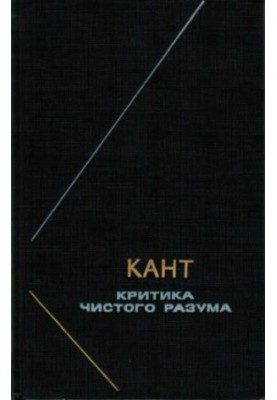Criticism of Pure Reason
 Instant download
Instant download
after payment (24/7)
 Wide range of formats
Wide range of formats
(for all gadgets)
 Full book
Full book
(including for Apple and Android)
The Critique of Pure Reason by Immanuel Kant is one of the most significant philosophical works in the history of thought, which opens the door to understanding not only philosophy, but also the very nature of human knowledge. Published in 1781, this book became the basis for many subsequent philosophical currents and still arouses interest and discussion among scientists, students and all those who seek to understand the world around them more deeply. Kant in his work sets an ambitious task: to explore the boundaries of the human mind and find out what exactly we can know about the world. He divides knowledge into two main aspects: empirical, based on experience, and transcendental, which concerns the conditions of the possibility of knowledge. This concept becomes the basis of his criticism, where he asks questions about how we perceive reality and what restrictions our own mind imposes on us. Kant introduces key concepts such as “a priori” and “a posterior” knowledge, as well as “categories” of the mind that help structure our understanding. This book will be of interest to a wide range of readers: from students of philosophical faculties to lovers of deep reflections on life and knowledge. If you are interested in questions about how we perceive the world, how our knowledge is formed and what boundaries exist in our understanding, the Critique of Pure Reason will be a real discovery for you. It will also be useful to those interested in the history of philosophy, since Kant had a significant influence on such areas as German idealism, existentialism and postmodernism. The themes raised in the book are relevant to this day.. Kant discusses how our perceptions and biases can influence our understanding of reality, which evokes interesting parallels with modern debates about subjectivity and objectivity in science and art. His ideas that we cannot know things by themselves (as opposed to how we perceive them) cast doubt on many traditional views of knowledge and truth. Kant's style may seem complicated and confusing, but that's where his greatness lies. He masterfully uses philosophical language to convey his ideas, and his argument requires careful reading and reflection. However, for those who are willing to dive into his thoughts, The Critique of Pure Reason offers an incredible intellectual journey. Kant is also the author of such well-known works as Critique of Practical Reason and Fundamentals of the Metaphysics of Morals, which continue to develop his ideas and concepts. If you are looking for books that can complement your understanding of philosophy, pay attention to the works of authors such as Friedrich Nietzsche, Georg Wilhelm Friedrich Hegel and Arthur Schopenhauer . Their works, like The Critique of Pure Reason, raise important questions about human existence, morality, and cognition. In conclusion, the Critique of Pure Reason is not just a philosophical work, but a real challenge for the mind, which makes you think about what it means to be a person in a world full of uncertainty and contradictions. This book is worth reading, comprehending and discussing, because it opens up new horizons in understanding the mind and its capabilities.
LF/967925145/R
Data sheet
- Name of the Author
- Кант Иммануил
- Language
- Russian
- Series
- Философское наследие 118
- ISBN
- 9785244007374
- Release date
- 1994

























